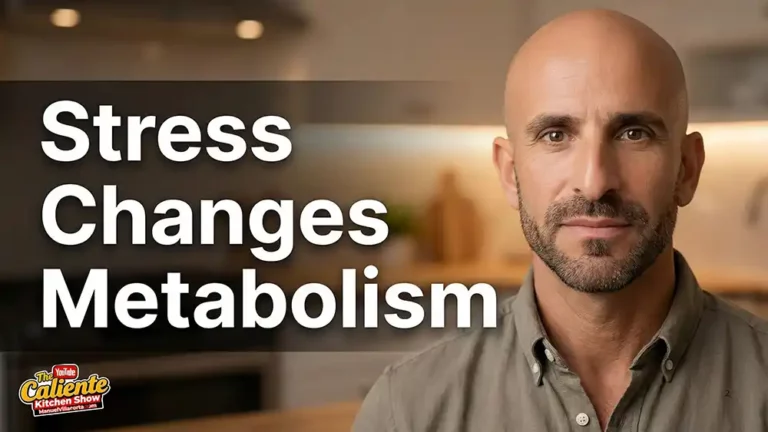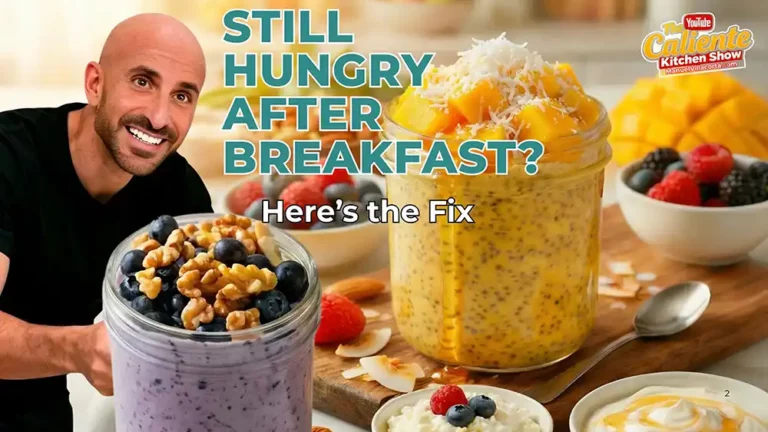If you’ve ever felt like sugar has control over you, you’re not alone. As the holidays roll in, cookies, pies, and chocolate seem to appear everywhere — but the truth is, most people battle sugar cravings all year long.
Think about it: December brings office treats and family desserts. Then comes Valentine’s Day, Easter, summer barbecues, Halloween candy, and Thanksgiving pies. Before you know it, we’re right back on the sugar rollercoaster.
But here’s the good news: your sugar cravings aren’t a sign of weakness or lack of willpower. They’re driven by biology. And once you understand what’s happening in your body, you can finally take control.
What’s Really Happening in Your Brain
When you go too long without eating or cut out sugar completely, your blood sugar levels drop, and your brain goes into survival mode.
Your brain runs mostly on glucose, which provides the fuel it needs to think, focus, and keep your body running. In fact, the brain uses nearly 20% of your daily calories — even when you’re resting.
So when glucose drops, your brain sounds the alarm: “Give me energy, fast!” And the fastest way to get that energy? Sugar.
This is why fighting cravings with willpower doesn’t work. You’re battling your own biology. Restricting food for too long only leads to stronger cravings later. It’s like trying to hold your breath. Eventually, your body will force you to take that breath. The same thing happens with sugar.
Client Story: Isabella
Take Isabella, for example. She was “perfect” Monday through Thursday. Eating salads, protein shakes, and very few calories. But by Friday night, she would binge on cookies, candy, and ice cream until she felt sick.
She believed she had no self-control, but in reality, her body was starving for energy.
We increased her calories to a sustainable 1,600 per day, added balanced meals every three to four hours, and included natural sugars from fruit. Within two weeks, her bingeing completely stopped.
How Blood Sugar Affects Mood & Cravings
When your blood sugar is stable, your brain produces enough serotonin and dopamine — the “feel-good” chemicals — that keep your mood balanced.
But when blood sugar crashes, those same chemicals plummet, and your brain craves sugar to bring them back up.
Research shows that balanced meals that contain protein, healthy fats, and complex carbohydrates help maintain blood sugar stability and prevent the highs and lows that trigger cravings. According to the National Institutes of Health (NIH), maintaining even glucose levels improves energy, mood, and appetite regulation.
Strategies to Manage Cravings
You don’t need to eliminate sugar to regain control. You just need the right strategy:
- Eat balanced meals every 3–4 hours.
- Pair sweets with protein or fat.
- Stay hydrated.
- Get enough sleep.
- Try the “Three-Bite Rule.”
Client Story: Roberto
Roberto once described himself as a “sugar addict.” Every afternoon, he needed a candy bar, and every night, ice cream.
When we began working together, I told him something surprising: We’re not eliminating sugar.
Instead, we focused on balance — regular meals with protein, healthy fats, and fiber every few hours, and one planned sweet treat daily.
Within two weeks, his cravings dropped by 80%. He started choosing fruit over candy and lost 15 pounds in two months — without feeling deprived.
Look Beyond Food
Sugar cravings aren’t always about food. Sometimes they’re about emotion.
Ask yourself:
When do I crave sugar most?
Stress, boredom, fatigue, or emotion?
Once you know your triggers, you can address the root cause instead of the symptom.
The Takeaway
You’re not weak, broken, or lacking discipline. Your sugar cravings are simply your body’s way of asking for balance.
Once you learn to stabilize your blood sugar, nourish yourself regularly, and understand your triggers, those intense cravings disappear.
If you’re ready to stop battling sugar cravings, regain control of your energy, and lose weight without restriction, schedule a free 20-minute discovery call with me.
Stop dieting, start living. Hasta la próxima.
References
- National Institutes of Health. Brain needs and glucose metabolism. https://www.nih.gov
- Harvard T.H. Chan School of Public Health. The Nutrition Source: Carbohydrates and Blood Sugar. https://www.hsph.harvard.edu/nutritionsource
- National Library of Medicine. The impact of sleep on appetite regulation. https://www.ncbi.nlm.nih.gov





